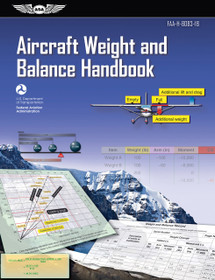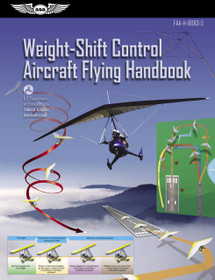Aircraft Weight and Balance Handbook
Weight and balance is an important aspect to the safety of flight. An overweight aircraft, or one whose center of gravity is outside the allowable limits, is inefficient and dangerous to fly. The responsibility for proper weight and balance control begins with the engineers and designers, and extends to the pilot and mechanic who flies and maintains the aircraft. This Federal Aviation Administration (FAA) publication addresses this safety-crucial topic and in studying this handbook, pilots and Aviation Maintenance Technicians (AMTs) will gain the necessary knowledge on the subject of aircraft weight and balance, in preparation for the FAA Knowledge Exam as well as safe flight and maintenance operations.
Basic aircraft weight and balance control principles and procedures for the preparation, and the actual weighing of an aircraft start the discussion, including the methods of determining the location of the empty weight center of gravity. Loading computations with loading graphs and tables of weight and moment indexes follow, including instructions on determining the weight and center of gravity changes caused by repairs and alterations or removal and installation of equipment. Chapters are dedicated to light-sport aircraft, single-engine aircraft, multi-engine aircraft, and commuter and large aircraft, as well as helicopter weight and balance control and determining lateral CG. Also included are examples of solving weight and balance problems using a hand-held electronic calculator, E6-B flight computer, and a dedicated electronic flight computer.
This 2016 edition reflects the latest aviation industry procedures, equipment, techniques, regulations, and is a key reference in the FAA Airman Certification Standards (ACS). Illustrated throughout with detailed, full-color drawings, and includes a glossary and index.












